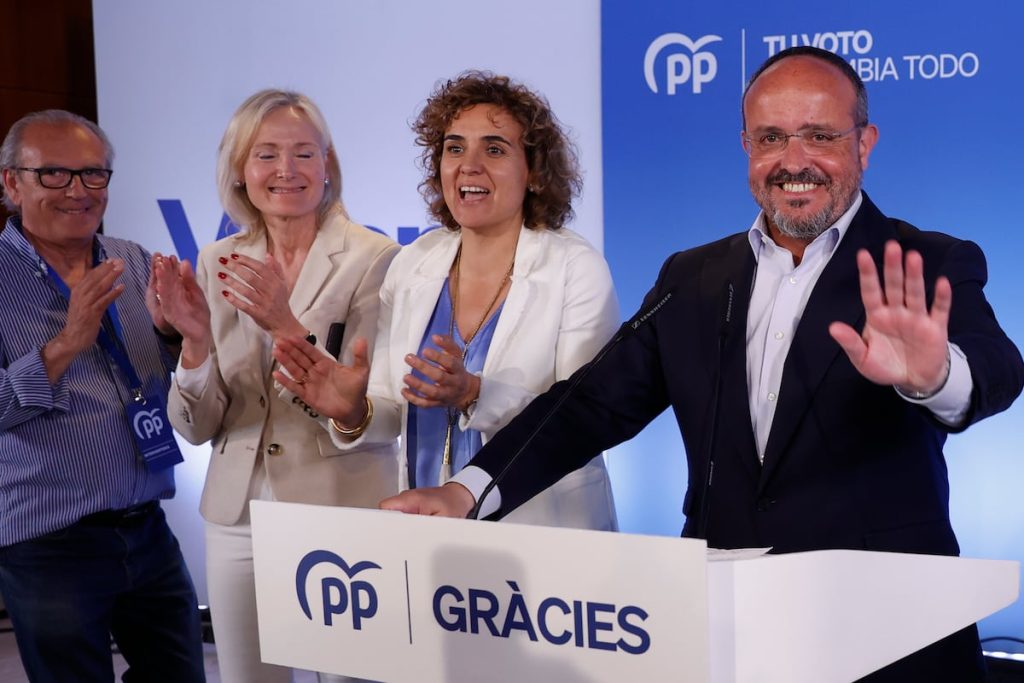The difference between being happy and being satisfied is subtle, much like the actual executive presence of the PP on the Catalan political map. The recent regional elections were not just another test for the PP led by Alberto Núñez Feijóo, and they confirm that their influence in at least three northern Spanish autonomous regions – Euskadi, Navarra, and Catalonia – is still in need of improvement. The national leadership of the PP tried to temper any enthusiasm about the results, content with tripling their current three meager seats, finishing fourth, and surpassing Vox. This is a minimum goal for a party that aims to govern and understand Spain. Ultimately, they have quintupled their result from 2021, causing joy in some PP offices and caution in others.
The PP, under the leadership of candidates Alejandro Fernández and Alberto Núñez Feijóo, has gained a total of 15 seats, 330,000 votes, and 11% of the vote; which translates to 12 more seats and nearly 200,000 more votes than in 2021, their previous electoral low point. Just 12 years ago, after internal leadership changes and struggles, the PP led by Alicia Sánchez Camacho achieved its record high result of 19 seats and over 471,000 votes. Feijóo, in the past general elections, garnered 473,620 votes (13.3%). Now those numbers seem like a distant dream. In the previous Catalan elections, all constitutional right-wing parties garnered nearly half a million votes (484,853), with Vox coming in fourth (217,883 votes and 7.69%), Ciudadanos sixth (157,903 votes and 5.57%), and the PP eighth (109,067 votes and 3.85%). With the disappearance of Ciudadanos, the PP has absorbed most of their votes and overtaken Vox, who nonetheless remains strong. The Popular Party can dream of being relevant if Illa needs extra support to replace the pro-independence government or to pass some projects with their assistance if they come to power.
Feijóo has immersed himself in Catalonia during this campaign enough to convey a series of messages: constant attacks on Pedro Sánchez and Salvador Illa and defining the PP as the only vote to ensure constitutional permanence and “to change everything”. However, after the results, it is unclear if anything will change, not even influenced by the PP. The party will now try to maximize its significance, boasting about the greatest percentage of growth, emphasizing the serious problems facing Sánchez in managing the eternal rivalry between Junts and ERC, bringing attention to the forgotten amnesty law in Catalonia, and bringing out the banners from the European elections on June 9. A prominent PP leader admitted this week: “In Catalonia, we have little to gain, but the real failure for Feijóo would be if everything Sánchez is doing doesn’t affect him in the European elections. Then things should happen”.















